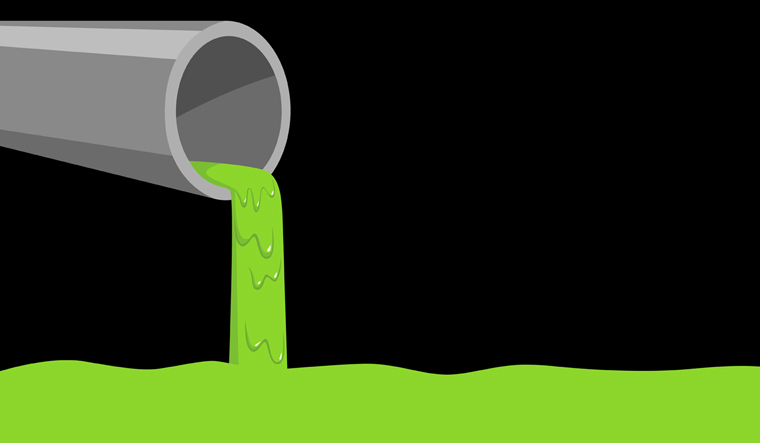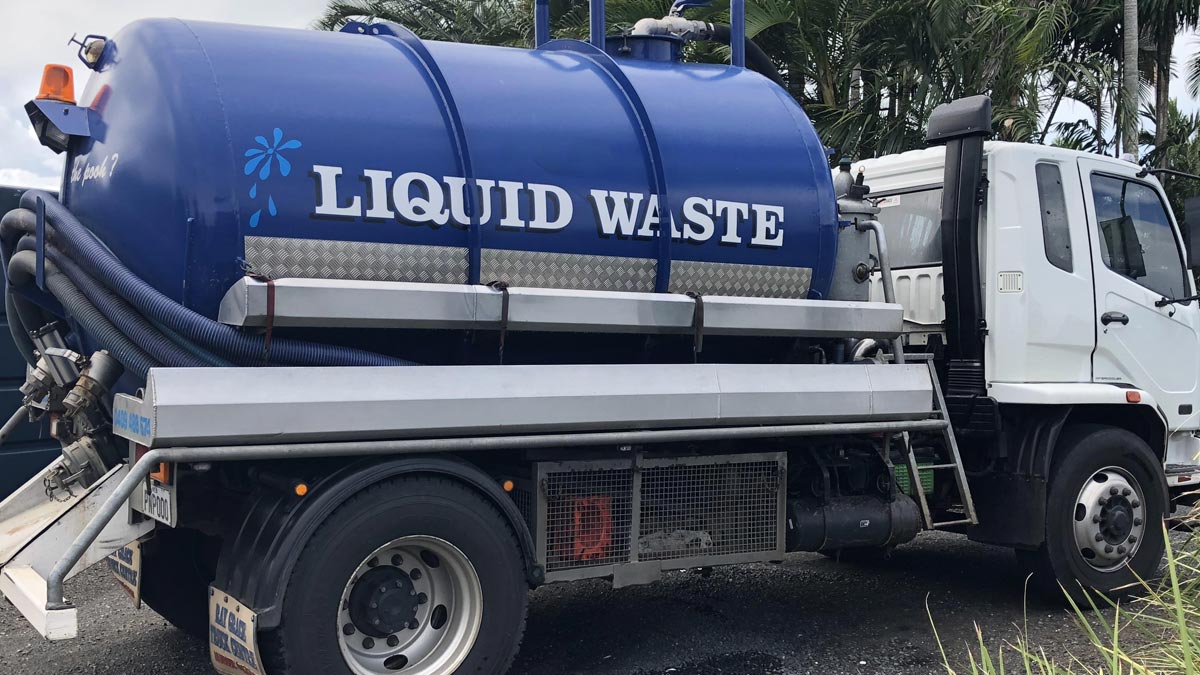Dependable Liquid Waste Disposal Melbourne: Safe and Efficient Providers
Dependable Liquid Waste Disposal Melbourne: Safe and Efficient Providers
Blog Article
Comprehending the Comprehensive Process of Fluid Garbage Disposal: Finest Practices and Environmental Impact Considerations
The monitoring of fluid waste disposal is a multifaceted concern that needs a thorough understanding of numerous best techniques and their connected environmental influences. From the types of liquid waste generated to the approaches utilized for collection, therapy, and final disposal, each step plays a critical duty in protecting environments and public health.
Kinds Of Fluid Waste
Comprehending the numerous types of liquid waste is vital for effective administration and disposal techniques. Liquid waste can be extensively classified right into several types, each calling for unique handling and treatment techniques.
Industrial fluid waste frequently includes unsafe materials, including heavy steels, solvents, and chemicals, generated throughout manufacturing processes. These wastes require rigorous regulatory compliance to safeguard human health and wellness and the setting. Residential fluid waste primarily refers to wastewater generated from families, consisting of sewage and greywater, which, although much less hazardous, can still position substantial dangers if improperly handled.
Agricultural fluid waste, consisting of runoff from farms, frequently consists of plant foods and chemicals that can result in environmental deterioration otherwise dealt with properly. Clinical fluid waste, generated from medical care facilities, consists of polluted fluids such as physical fluids and chemicals, calling for specialized disposal approaches to stop infection and ecological contamination.
Lastly, oil and grease waste, normally produced by dining establishments and vehicle industries, can trigger serious obstructions in sewer systems otherwise handled effectively. Recognizing these classifications promotes targeted methods for treatment, compliance with laws, and reliable disposal techniques, ultimately promoting ecological sustainability and public health and wellness security.

Collection Methods
Efficient collection approaches are important for the appropriate monitoring of fluid waste, making certain that it is collected securely and efficiently before treatment or disposal. Different methods are employed relying on the sort of fluid waste created, the quantity, and the certain qualities of the waste.
One usual approach is the use of specialized collection tanks or sumps, which are created to catch fluid waste at the source. These systems usually integrate pumps that help with the transfer of waste to bigger storage space containers or treatment centers. Furthermore, mobile collection systems geared up with vacuum cleaner modern technology are used in situations where waste is created intermittently or in hard-to-reach areas.
For industrial settings, closed-loop systems can efficiently decrease leaks and spills, enabling the recovery and reuse of liquid waste. It is also vital to educate employees on correct collection protocols to minimize threats connected with dangerous compounds.
Furthermore, carrying out normal upkeep schedules for collection tools ensures optimum efficiency and safety and security. The assimilation of advanced tracking systems can improve collection efficiency by offering real-time information on waste levels and potential threats. Overall, reliable collection approaches are fundamental to lasting liquid waste management practices.
Treatment Processes
Treatment procedures play a vital role in the monitoring of liquid waste, changing possibly unsafe products right into secure effluents or multiple-use sources - liquid waste disposal. These procedures can be broadly classified right into physical, chemical, and biological approaches, each tailored to attend to particular impurities existing in the waste stream
Physical treatment methods, such as sedimentation and purification, job by eliminating suspended solids and particulate matter. These techniques are typically the very first step in the treatment chain, efficiently lowering the lots on succeeding processes. Chemical therapies involve using reagents to neutralize unsafe materials, precipitate hefty steels, or oxidize organic contaminants, thus boosting the safety and security of the effluent.
Organic treatment procedures, including turned on sludge systems and anaerobic food digestion, capitalize on the all-natural abilities of microorganisms to weaken organic matter. These techniques are especially reliable visit their website for wastewater consisting of eco-friendly contaminants. Advanced therapy modern technologies, such as membrane purification and advanced oxidation procedures, are increasingly employed to attain greater degrees of filtration.
Including a combination of these treatment approaches not just makes sure compliance with regulatory requirements however likewise promotes environmental sustainability by recovering important sources from fluid waste.
Disposal Options
How can companies make certain the accountable and risk-free disposal of fluid over at this website waste? Efficient disposal alternatives are important for protecting public health and wellness and the environment. The primary methods include land disposal, therapy, and incineration followed by discharge into community wastewater systems.
Land disposal involves the careful containment of liquid waste in designated landfills, making sure that it does not seep right into surrounding soil or water. Incineration, on the other hand, subjects fluid waste to heats, converting it right into ash and gases, which require proper filtration to minimize emissions. This approach appropriates for contaminateds materials that can not be dealt with with standard ways.
In situations where liquid waste can be treated, organizations might opt for biological or chemical therapy procedures to neutralize harmful components prior to releasing the treated effluent into local systems. This route typically aligns with governing needs, making sure that the effluent satisfies safety standards.
Inevitably, organizations must perform detailed evaluations of each disposal option to establish its stability, thinking about factors such as waste make-up, governing compliance, and potential dangers to health and the setting. By choosing proper disposal methods, services can add to an accountable waste monitoring method.
Environmental Effect
The environmental effect of fluid waste disposal is a vital factor to consider for companies looking for to minimize their environmental footprint. Inappropriate disposal techniques can bring about considerable contamination of water sources, dirt degradation, and negative results on regional ecosystems. For circumstances, dangerous liquids can leach right into groundwater, positioning risks to drinking water products and aquatic life. In addition, the discharge of untreated or inadequately dealt with waste right into surface waters can lead to eutrophication, resulting in oxygen depletion and the subsequent death of fish and various other microorganisms.

To alleviate these effects, organizations must adopt ideal techniques such as carrying out extensive waste treatment processes, advertising recycling and reuse, and sticking to regulative standards. By taking a proactive method to liquid waste management, entities can significantly lower their environmental footprint while supporting sustainable development objectives. Inevitably, a detailed understanding of the environmental impacts connected with fluid garbage disposal is important for educated decision-making and accountable stewardship of natural sources.
Final Thought
Reliable monitoring of liquid waste is vital for safeguarding environmental stability and public wellness. Eventually, a thorough understanding of liquid waste disposal not just minimizes environmental impacts however additionally cultivates a commitment to responsible resource administration and ecological stewardship.
The monitoring of fluid waste disposal is a multifaceted issue that requires a detailed understanding of various best techniques and their connected ecological impacts. From the kinds of liquid waste created to the methods utilized for collection, treatment, and last disposal, each step plays an essential role in securing ecological communities and public wellness.The ecological impact of liquid waste disposal is an important factor to consider for look what i found companies looking for to decrease their eco-friendly impact. Inevitably, a thorough understanding of the ecological influences connected with fluid waste disposal is important for informed decision-making and responsible stewardship of all-natural sources.
Inevitably, a detailed understanding of fluid waste disposal not only reduces environmental impacts yet additionally promotes a commitment to liable resource administration and environmental stewardship.
Report this page